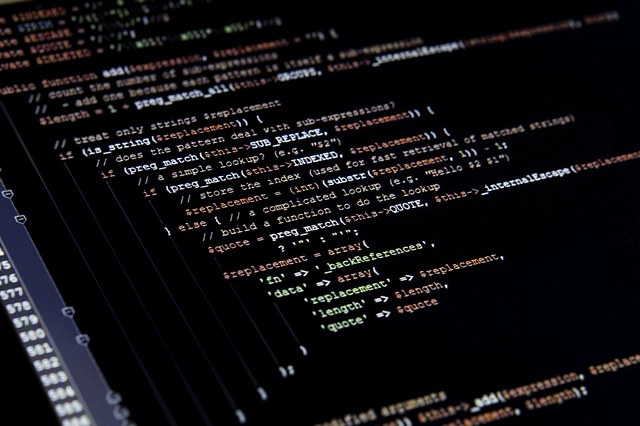What is algorithmic trading in simple terms.


Trading allows for good earnings and has several types. A good example can be considered algorithmic trading and all related processes. In general, it will be useful for any trader to understand what algorithmic trading is. In addition to what it is and how to use it, it is generally worth understanding it in simple terms.
Algorithmic trading is: a brief and clear description

So, what is algorithmic trading. In general, it is algorithmic trading, which is a shortened name for such a process. It is a method through which trading on financial markets is carried out. To conduct such trading, special programs or algorithms are needed. Algorithmic trading allows traders to automate the process of buying and selling assets based on predefined conditions and market data. The main advantage lies in the speed and accuracy with which algorithms execute trades, which is often impossible to achieve manually.
How does it happen?

Traders always have their strategy. This is a mandatory condition. The trader constantly adheres to this strategy: he takes into account a whole range of conditions through which assets are bought or sold. In this case, special algorithms allow automating this process: they quickly analyze data, recognize situations, and execute trades according to the set parameters.
Such an algorithm has its components. What is being referred to:
-
The algorithm itself is a mathematical formula. It describes the conditions for entering and exiting a trade.
-
Market data are also taken into account in this algorithm. The algorithm relies on historical and current data regarding prices, volumes, news, and other market indicators.
-
Also, a trading platform is definitely required for such an algorithm. This is special software through which the algorithm gains access to the market and executes trades.
For the algorithm to work, servers and networks must be used for rapid data processing and communication with the exchange.
The principle of operation of algorithms in trading

So, the algorithm makes a certain decision. It has predefined conditions, which, in turn, are determined by the strategy. This process has its understandable conditions:
-
First, data must be gathered. The algorithm collects market data (prices, volumes, trends).
-
Next, thorough data analysis must be conducted. Based on historical information and current data, the algorithm makes forecasts.
-
Afterward, it is about executing trades. If the market situation meets the established conditions, the algorithm automatically opens or closes positions.
In the end, it is certainly necessary to evaluate the results. After execution, the algorithm assesses the results for possible improvement of the strategy.
What are the advantages of algorithmic trading?

Every year, the popularity of such algorithms is only increasing. This is about traders. The thing is, what advantages this process has:
-
The speed of the entire process. Algorithms analyze data and execute trades in milliseconds.
-
The algorithm also has its accuracy, which is quite high. The human factor is minimized, reducing the risk of mistakes.
-
The algorithm also works around the clock. Algorithms can operate 24/7 without fatigue and emotional breakdowns.
-
The algorithm strictly follows a predefined strategy, excluding emotional decisions.
The algorithm is also used for testing. This way, the effectiveness of many processes can be assessed.
However, algorithmic trading has its significant drawbacks. What is being referred to:
-
The algorithm has an extreme dependence on technology. Any delay or system failure can lead to losses.
-
Also, the market is quite unpredictable. Algorithms based on historical data may not take sudden changes into account.
-
The algorithm also faces significant competition. Many companies use similar algorithms, making the market more saturated and complex.
-
One must not forget about technical expenses. Powerful equipment and access to quality data are required.
In general, before using each algorithm, one must consider all the pros and cons.
What are the types of algorithmic strategies?

There are several strategies, and each has its pros and cons. What are the most popular strategies:
-
First, let’s consider scalping. Frequent and small trades aimed at extracting profits from small price fluctuations.
-
Don't forget about arbitrage. Buying and selling one asset in different markets to profit from the price difference.
-
Market making. Creating buy and sell orders to ensure liquidity and profit from the spread.
-
One should not forget about trend following. Buying or selling assets depending on the direction of the market trend.
-
You can also pay attention to pairs trading. Simultaneous buying and selling of two similar assets to earn on the difference in their prices.
All these strategies can work under certain conditions.
What platforms can be used for algorithmic trading?
There are also several popular platforms that can be used for such algorithms (to earn from trading). What to pay attention to:
-
MetaTrader. One of the most popular platforms for trading that supports automated strategies.
-
QuantConnect. A platform for creating and testing algorithmic strategies.
-
Interactive Brokers. Supports algorithmic trading and provides API for connection.
-
TradingView. A popular tool for analysis and creating trading scripts.
-
Alpaca. A platform for algorithmic trading in the stock market with API access.
All these platforms can be useful for earning from trading.
So, you need to choose a strategy and a program, and that will be enough to earn well. More attention should be paid to the choice of strategy. First, you should define the goal, and then choose the assets. Determine the assets you want to work with. Then you can develop the algorithm and test the strategy. Use historical data to test the strategy. In general, it's worth testing with a small capital. After that, you can launch it in the market. Finally, monitor all results.
Read also
- Leaped forward — how prices for apartments in Uzhhorod have soared
- New report for individual entrepreneurs - which document needs to be submitted and to whom
- Police Salary Structure — What It Consists Of in 2025
- Sell copper on OLX — what is happening with scrap prices in July
- The wallet is not holding—what products have risen in price the most
- Severance Payments for Employees — What to Consider in 2025









